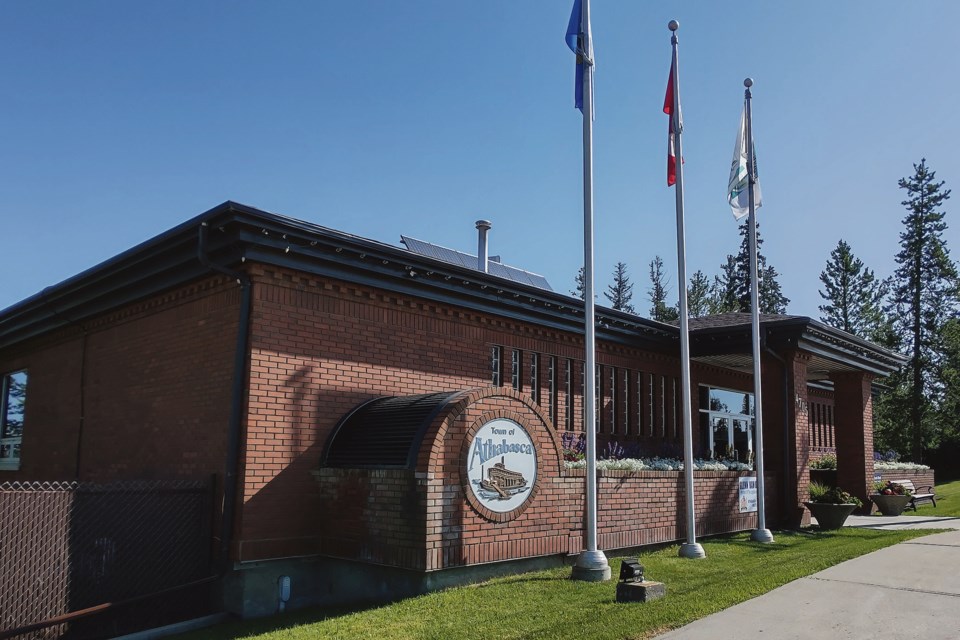ATHABASCA - There hasn’t been a cluck of concern over the past two years as the Town of Athabasca quietly made its way through the pilot project that was the backyard hen bylaw.
Now, with only one application and zero complaints over the course of that pilot project, Bylaw 11-2022 – Backyard Hen Bylaw became the law of the land as town council passed all three readings and unanimous consent at their Dec. 20 meeting — one of three bylaws they would consider that night.
“We've discussed this, we already have a bylaw in place. This is just removing the two-year pilot project and making it permanent. So, we can do all three readings, if council is comfortable with that,” said CAO Rachel Ramey.
Coun. Sara Graling motioned for first reading and served up the first poultry-themed pun of the night that included several.
“I would like to make a motion; I’m not chicken,” she said.
Coun. Edie Yuill motioned for second reading, which also passed.
Mayor Rob Balay wondered if there was any urgency to passing the bylaw that night, while Coun. Dave Pacholok asked if advertising it on the town website, as a courtesy to residents before passing third reading might be advisable.
Ramey replied it was entirely up to council but reiterated that the one application that had been approved had not been subject to any complaints in those two years.
The bylaw stipulates that that up to four hens may be kept on a property with the $40-licence from the town and lays out a number of requirements henkeepers must meet and follow to remain eligible. There are also a couple prohibitions, including the keeping of roosters and any hen under 16-weeks old. Violations of the bylaw are fined starting at $100 for the first offence then $150 for subsequent offences.
The entire bylaw is available to view on the town website.
Graling pointed out that bylaws can be “revoked if they don’t function correctly”, as Coun. Ida Edwards asked for unanimous consent to go to third reading, which was then moved by Graling upon being approved.
Balay asked council to take a pause before passing third reading.
“So, I just like to add one word of caution — we don't want to count our chickens before they've hatched.”
Third reading also passed unanimously.
Utility Rate Bylaw
Following the passage of a one-rate fee for all three partners by the Aspen Regional Water Services Commission (ARWSC), the cost of water to town residents will increase from $3.39/m3, to $4/m3, starting in 2024.
“That’s going to be an increase of $235,000, roughly, that we’ll have to start paying starting in 2024. What this bylaw does is prepare us for that,” said CFO Jeff Dalley, adding that figure is based on 401,000m3 of usage.
First reading of Bylaw 13-2022, which amends Bylaw 001-2022 – Utility Rate Bylaw, will see the minimum charge for water service increase from $23.81 per billing cycle for 5m3 to $25.60 per billing cycle; under 18m3 will be charged at $5.1201/m3, up from $4.7629/m3; up to 45 m3 will be charged at $5.2697/m3, from $4.9020/m3; and over 45 m3 will be charged at $5.8021/m3, up from $5.3973/m3.
Bulk water will also increase from $9.24/m3 to $10/m3. In addition, while the metered sewer rate for ARWSC will remain at 36 per cent, it will be calculated at the base water rate of $1.8432/m3, up from $1.7146/m3.
A new utility distribution charge of $25 per billing will also be charged on all water service meters.
“All we can do for now is pass it, it doesn’t mean the way it sits now is the way it will end up. It’s just that in order to start the process, this is what is required,” said Balay.
Council decided to hold off on second reading and will further discuss the new rates at a January meeting.
Council Procedural Bylaw
The second bylaw on the agenda involved a number of changes to how council meetings unfold and how the agenda is presented.
CAO Ramey noted Section 5.7 of Bylaw 12-2022 – Council Procedural Bylaw, which guides the order of the agenda, was adjusted slightly to include a land acknowledgement at the beginning of council meetings. In-camera sessions are also now referred to as closed sessions.
“And I separated ‘old’ and ‘new business’ and removed ‘council concerns’.
Coun. Yuill asked for the reasoning behind removing the latter.
“Because it is very rarely used. If there is a council concern and it’s an administrative concern, it can be brought to my attention and dealt with and if it’s a bigger concern it can be brought to council with an RFD (request for decision),” said Ramey.
Mayor Balay wanted to confirm there was a mechanism in place for time-sensitive concerns that don’t meet the required time frame to be put on the next agenda. Ramey noted there was, as it only requires council’s acceptance, whether verbal or written.
“I’m comfortable with that information. As long as there’s a mechanism in place to deal with that,” he said.
Council went on to pass all three readings with unanimous consent.



